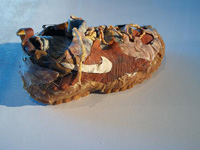Team:Heidelberg/Human Practices/Philosophy
From 2010.igem.org
(→Philosophical Reflection) |
|||
| Line 3: | Line 3: | ||
=Philosophical Reflection= | =Philosophical Reflection= | ||
| - | This | + | |
| + | One may wonder why I am here and why you, my dear reader, has to read my line. I am not normal. Well, concerning iGEM and the variety of young, unusual students I have to explain why I am even more abnormal. I study Philosophy and, indeed, Philosophy is quite different from Synthetic Biology. But in Spring 2010 I got involved in a strange thing called iGEM. I listen, got interested and ... was present. Once within, the question arises what a philosopher could do in the evolving field of SynBio. They were so many interesting tasks and topics which occur after a first introduction! But after all, the human practice team and I agreed in two budding issues, one more ethical, the other more philosophical. | ||
| + | |||
| + | [[Image:Stephanie-Hofschlaeger_pixelio.de.jpg|thumb|200px|left|Stephanie-Hofschlaeger_pixelio.de]]This year's Heidelberg team has an ambitious project that goes far beyond the aims of other teams. Not even the designing of a gentherapeutical regulator but also its test on mice is fascinating. But indeed, besides all the thrill and scientific challenge the project raises several, fundamental questions. Thereby, I was not interested in dealing with animal testing in general because German legislation and restriction handle this issue. I pursue the matter if it is problematic that animal testing is conducted within the iGEM competition. Or aksed the other way around: What problems may rise from conducting animal testing within iGEM? Should we differentiate between iGEM and normal research groups? What responsibility may the organizers of iGEM have to face? And most fundamental: Should young students conduct animal testing to win a competition? | ||
| + | |||
| + | |||
| + | [[Image:A_kep_flickr.jpg|thumb|200px|right|A_kep_flickr]]The importance and public interest to SynBio increased in the last years noticeable. Magazines, newspapers, TV-stations, reports, all deal with SynBio and all use terms to mediate facts, opinions or even manipulations. This terms, however, are the basis of the perception of SynBio and they can be quite problematic. Phrases like "artificial cells", "living machines" or "`genetically engineered machines"' test and provoke our intuitions concerning the most distinct concepts humans are up to: nature and technology. They also pretend to be something what they might not really are. If you want to know why "living machine" is high-grade questionable, why "artificial cell" is misleading and what kind of problems may occur of an inappropriate use of terms and what, at last, the "flesh-shoe" has to do with all of this, feel free to press the XXX. | ||
| + | |||
| + | |||
[https://2010.igem.org/Team:Heidelberg/Human_Practices/Philosophy/Part2 Notebook Philosophical Analysis] | [https://2010.igem.org/Team:Heidelberg/Human_Practices/Philosophy/Part2 Notebook Philosophical Analysis] | ||
Revision as of 01:10, 25 October 2010

|
|
||
 "
"
